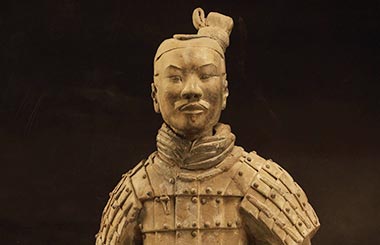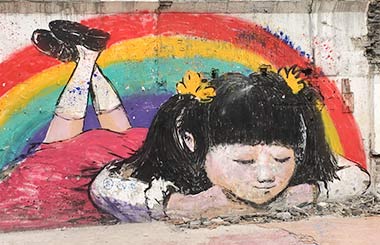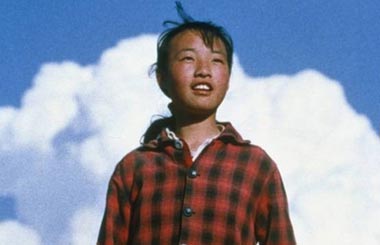A touch of a manga
By Xu Fan ( China Daily ) Updated: 2016-09-08 07:39:34
"Chinese audiences have gotten used to watching fast-paced films because of Hollywood blockbusters," says Zhang. "A condensed plot is appealing to domestic moviegoers."
China allows 34 foreign films for general screening on a revenue-sharing basis every year. Another 30 or so foreign films are shown by purchasing their screening licenses, without arrangements to share their mainland box-office revenues. Parasyte was introduced in the latter category.
Many industry sources see the film's screening here as a breakthrough that reflects China's increasing openness to diverse cultures.
"The film has more significance in its screening than commercial performance in China," says Wang Feng, a film critic.
"Japanese movies are usually pushed to the margins by Hollywood films in China," he says, adding that after this live-action feature, Japanese films may now have the potential to earn more in China's lucrative market.
But there are opposing voices as well.
A few scenes in Parasyte could scare children, so some industry watchers say the theaters should warn parents in advance.
China has yet to establish a movie-rating system, which is why limitations on the viewing age isn't specified in films, including horror and thrillers.
In recent years, most Japanese films shown on the Chinese mainland have been animations, such as the Doraemon movies, Saint Seiya: Legend of Sanctuary and Boruto: Naruto the Movie.
Before Parasyte, the only live-action Japanese film to have been introduced in China in the past five years was Flying Colors in April. It is the coming-of-age story of a teenager.
Animated Japanese films based on manga comics are liked by many Chinese, and Parasyte is rooted in that style, too.
The Parasyte manga series won the Seiun Award-Japan's highest award in science fiction-for being the best manga comic of 1996.
"China has a big fan base when it comes to the manga series," says Zhang.
On Baidu Tieba, one of China's largest online forums, there are 1.6 million reviews from more than 170,000 users discussing the books and screen productions.
Many film studios wanted the rights for the series' cinematic adaptation until Toho, known for the monster epic Godzilla (1954), purchased the copyright and put Takashi Yamazaki at the helm as director.
"Yamazaki is known to Chinese audiences since his other directorial work, Stand by Me Doraemon, caused a stir in China last year," says Zhang.
He says the cast and crew of the two Parasyte films had earlier planned to promote the Chinese movie here. But the event was canceled as the lead actor, Shota Sometani, was busy shooting for Chinese director Chen Kaige's Yao Mao Zhuan (Legend of a Cat Demon). Chen's film is based on the Japanese fantasy novel Samon Kukai.
- Hollywood distributor eyes opportunities in global ambition of Chinese film industry
- 'Star Trek Beyond' earns over 200 mln yuan in 4 days
- Iranian director Amir Naderi honored at 73rd Venice Film Festival
- China Film Forum at Venice draws creative film industry professionals
- Jackie Chan named spokesman of Silk Road film fete
|
|
|
|
|
|
|
|

























 Raymond Zhou:
Raymond Zhou: Pauline D Loh:
Pauline D Loh: Hot Pot
Hot Pot Eco China
Eco China China Dream
China Dream China Face
China Face






